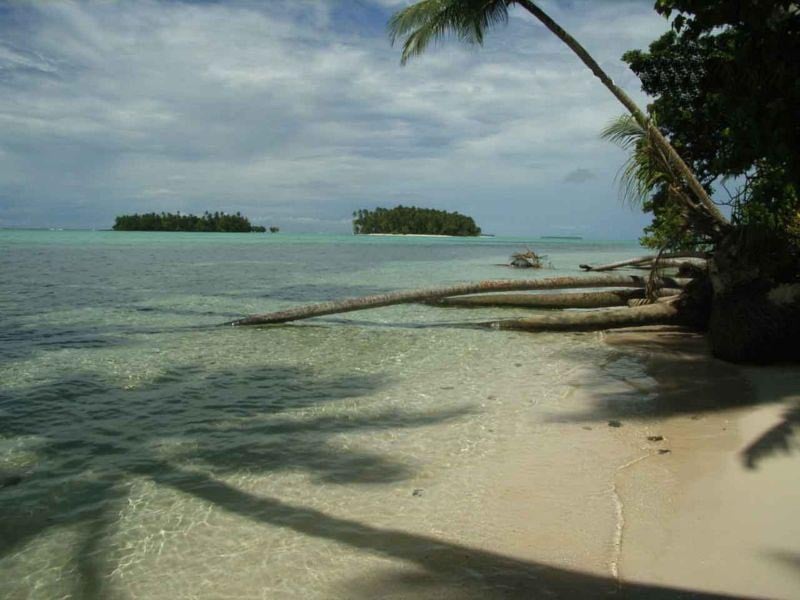Sea levels around the atoll have risen 10cm in the past 20 years, inundating plantations, and the situation is deteriorating, islanders told IRIN, saying they urgently need assistance to be relocated to higher ground.
"Food gardens and coconut groves have been destroyed and children are going to school hungry," Ursula Rakova, chief executive officer of Tulele Peisa, a local NGO advocating for the rights of islanders, told IRIN when asked about the rising sea levels on Carteret Island.
Many of the island's inhabitants have run out of food and their staple, coconuts, are being wiped out as the sea level rises.
"It is extremely difficult now for food crops to grow on the atolls. Salt water seeps through the land making it impossible for food to grow," Rakova said. "Breadfruit is seasonal and not as plentiful as it was 30 years ago and fruits are getting smaller in size … bananas struggle to grow in the salt-inundated land."
|
Video short on climate change and Carteret Island |
While the Autonomous Bougainville Government (ABG) takes the plight of the Carteret islanders seriously, its options are few. "We are doing all we can, but we have limited resources," said ABG Member for Atolls, Taehu Pais. In addition, there is the problem of acquiring the necessary land to relocate the islanders.
"At the moment people are living on 200 bales, or 5,000kg, of rice sent by the Autonomous Bougainville Government. The supply will not last as many families have six children or more," said Rakova.
"Children are going to school, but on hungry stomachs," she said. "It is the children and women who are vulnerable," she added. For this reason her NGO is assisting in negotiations with Tinputz landholders so that islanders can move to high land in the town on the mainland of Bougainville and build 10 homes on land provided by the Catholic church.
The PNG government responded to the Carteret issue by allocating K2 million (US$700,000) in 2007 to a relocation programme. Subsequently the ABG administration decided the funds should be allocated not just to Carteret but to four other atoll islands as well.
The other atolls have made no relocation plans and are not as seriously affected as the Carterets, said Rakova, adding that the government funds were "not enough to cater for all the atolls".
Juliana Samsi, who is in charge of the Carteret Island Sub Health Centre, told IRIN: "We encourage Tulele Peisa to continue to push for the relocation of Carteret islanders. We are so scared living on these atolls that any time soon waves will come and sweep over all of us. What will the ABG do when this happens?"
 Photo: Wikimedia Commons  |
| A map of Papua New Guinea and surrounding countries. Carteret Island can be found among the islands in the area at the far right of this map |
Rakova said Carteret residents never previously feared the sea, but now worry that an enormous wave will wipe them off their island. "People see with their naked eyes the impact of the rising sea levels," she said. "The atolls are going down and going down really fast.
"Carteret islanders are victims of climate change and rising sea levels," Rakova said, "and industrialised nations have to support my people in their transition from the atolls to mainland Bougainville.
"[We] need financial support and Tulele Peisa needs K800,000 [$280,000] to build 10 family homes on the land donated by the Catholic church of Bougainville."
Bougainville island is recovering from a civil war that took the lives of more than 20,000 people. The PNG government granted autonomy to the Bougainville in June 2005. With minimum funding from the PNG government, ABG is struggling to provide assistance to its 200,000-plus people.
et/bj/mw
Read also
Nowhere to run from nature
This article was produced by IRIN News while it was part of the United Nations Office for the Coordination of Humanitarian Affairs. Please send queries on copyright or liability to the UN. For more information: https://shop.un.org/rights-permissions





